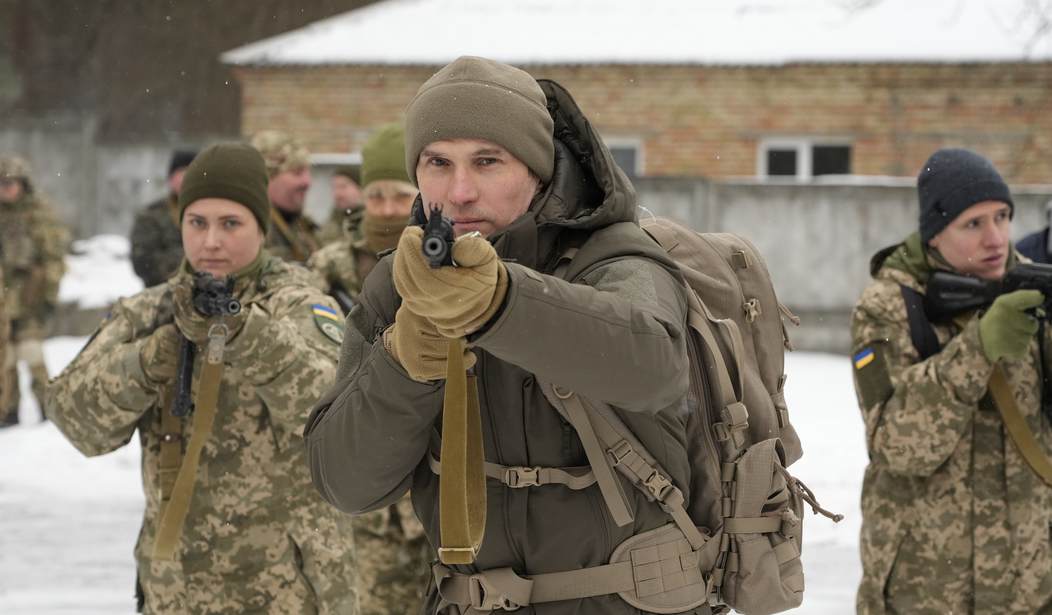Patreon is a San Francisco-based crowdfunding platform that was launched in 2013. A nonprofit page on the platform that fundraises for the Ukrainian army has been suspended and is under investigation by Patreon.
Come Back Alive started in 2014 and is based in Kyiv. It is a nonprofit that provides equipment for the Ukrainian army. It raised hundreds of thousands of dollars in donations on its Patreon page. The donations poured in after Russia invaded Ukraine. The fundraising campaign is under investigation for supporting the purchase of military equipment which is banned by Patreon. Come Back Alive has been raising money but up until Russia invaded Ukraine this week, only small amounts were being donated over the last several months. After the war began, more than $300,000 was donated, including many donations of less than $1,000. That appears to have gotten the attention of Patreon administrators.
“Patreon does not allow any campaigns involved in violence or purchasing of military equipment, regardless of their cause,” a company spokesperson told CNBC in an email. “We are investigating because of representations on their donation page for how the funds will be used. We have suspended the campaign in question while we investigate. If a page is ultimately removed our policy is to send the creator the remaining funds or refund all pledges.”
Come Back Alive director Taras Chmut said that the organization last received money donated on its Patreon page in August. Is Patreon only now realizing what the money is being raised for and that it violates their policy? Chmut tried to access account details on the page Thursday but he received a message that read ““This page has been removed.” Other visitors to the page received the same message.
Come Back Alive collects donations to distribute body armor, medical kits, and helmets to Ukrainian soldiers. It also provides mobile surveillance systems, televisions, and other equipment. Chmut was attempting to transfer money out of the account to pay for equipment. The group emailed Patreon when it couldn’t access the page. Patreon emailed back explaining it was looking into the case. Ukrainian officials announced Thursday a mobilization effort to expand the country’s military forces. However, the people joining often don’t have body armor or other equipment they may need to fight. Chmut is a veteran of Ukrainian armed forces. He explained that Ukraine is not a rich country and Come Back Alive supplements equipment needs for those who sign up to fight.
If the Patreon page is permanently removed, Chmut will receive the remaining funds or Patreon will refund all of the pledges.
The nonprofit has been collecting donations in bitcoin, too. Donations have been pouring in to a bitcoin wallet code listed on Come Back Alive’s website since the war began. The Patreon page, though, is the most convenient way for foreigners to contribute. Chmut said, “We have too much money here to lose it.” Data from blockchain analytics from Elliptic shows that during a 12-hour period, almost $400,000 in bitcoin was donated to Come Back Alive.
The fresh round of crypto donations capitalizes on a trend seen in recent weeks, in which donations totaling hundreds of thousands of dollars have flooded into Ukrainian NGOs and volunteer groups working to stave off a Russian offensive, according to Elliptic.
Activists have deployed the crypto for a variety of purposes, including equipping the Ukrainian army with military equipment, medical supplies, and drones, as well as funding the development of a facial recognition app designed to identify if someone is a Russian mercenary or spy.
“Cryptocurrency is increasingly being used to crowdfund war, with the tacit approval of governments,” said Tom Robinson, chief scientist of Elliptic, which sells blockchain analytics tools to banks and cryptocurrency platforms.
According to reports Thursday night, adult males ages 18-60 are not being allowed to leave Ukraine. They are expected to stay and fight. Most Ukrainians sound prepared and willing to do that anyway.
Volunteer groups have a history of supplementing Ukraine’s military with resources and manpower. For example, when former Ukrainian President Yanukovych, who was pro-Russian, was ousted in 2014, volunteers came through to support protesters.
Cryptocurrencies like bitcoin are popular because they bypass traditional financial institutions that might block payments to Ukraine. More than $1M has been raised so far with a rapid increase in that number expected because of Russia’s invasion. As this war goes on, Ukrainians will need all the help they can get.







Join the conversation as a VIP Member